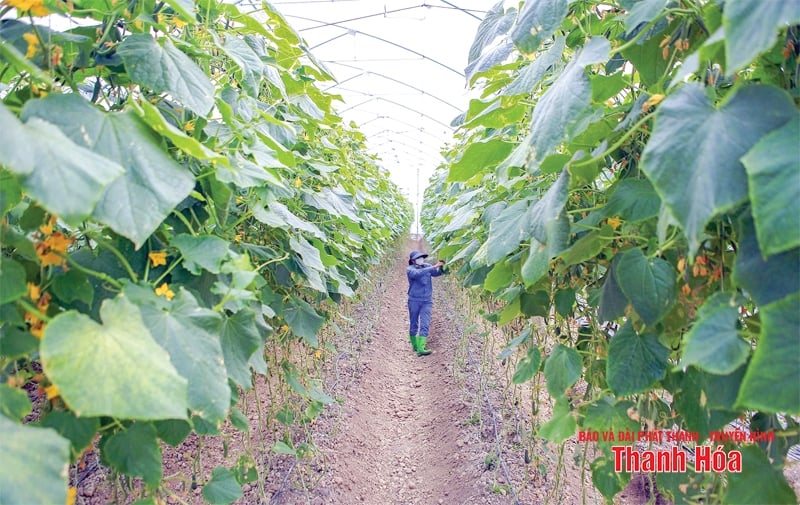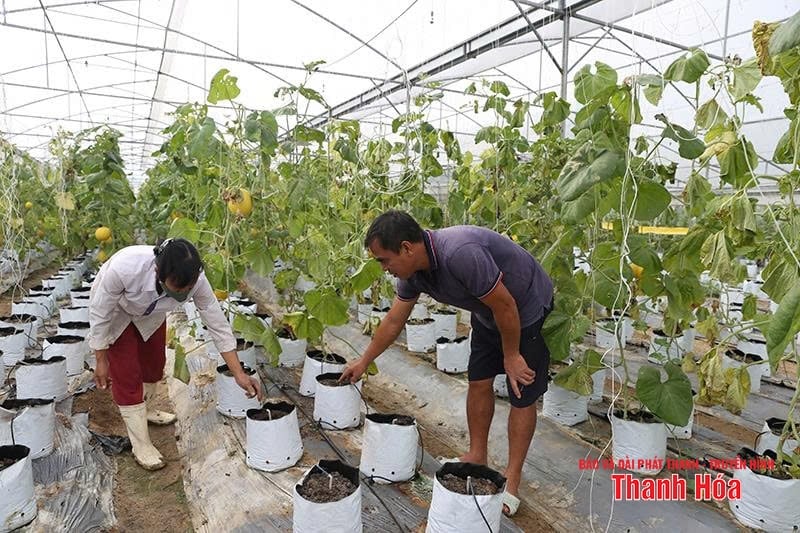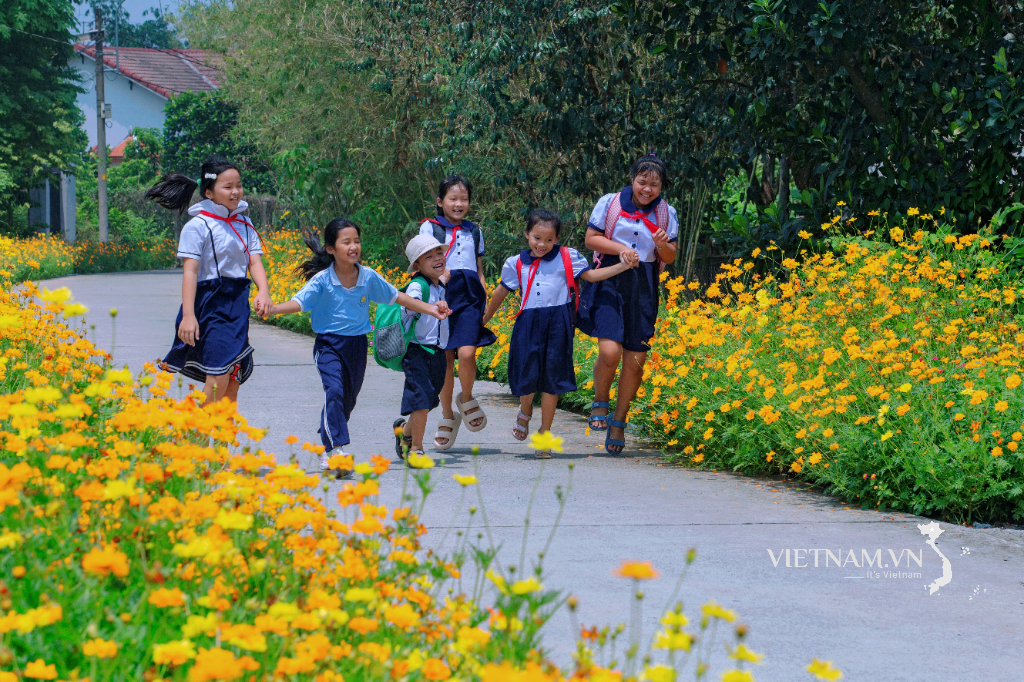Residents of Yen Trung commune (Yen Dinh district) are removing old leaves to reduce water evaporation and better protect crops during the hot season. Photo: Le Hoi
According to the Thanh Hoa Provincial Meteorological and Hydrological Station's forecast, in 2025, the North Central region is likely to experience several prolonged periods of intense heat from May to August, with temperatures significantly higher than the multi-year average. The heat will be concentrated around midday and early afternoon, causing soil dryness, rapid water evaporation, and reduced crop growth. Furthermore, the increased prevalence of pests and diseases during this transitional period poses a serious threat to crops if proactive preventative measures are not taken.
In the 2025 summer-autumn crop season, Thanh Hoa province plans to plant over 120,000 hectares of various crops, mainly rice, corn, sugarcane, vegetables, and perennial fruit trees. To ensure production safety under unfavorable weather conditions, the agricultural sector has directed localities to review and adjust the crop structure to suit water supply capacity, prioritizing short-day varieties that are drought-resistant and capable of growing in hot weather.
People in Quang Hop commune (Quang Xuong district) are using automatic sprinkler irrigation technology for their crops during the hot season.
In Trieu Son district – one of the provinces with a large cultivated area – right from the beginning of the season, the district has guided communes and towns to select rice varieties that are resistant to drought and pests, such as QR1, Thien Uu 8, TBR225, etc. At the same time, it has requested agricultural service cooperatives to strengthen propaganda and technical training for farmers, especially on water-saving farming methods and soil moisture retention during prolonged hot weather.
According to Bui Van Long, Director of the Dan Ly Commune Agricultural Services Cooperative: “We guide farmers to apply fertilizer rationally, use straw mulch, and alternate watering in different areas to ensure water conservation. We also regularly inspect the fields to detect pests and diseases early, and spray pesticides correctly and at the right time to minimize damage.”
Not only rice and other crops, but also many areas of perennial fruit trees are facing pressure from harsh weather. In Tho Xuan district, the local government has implemented many measures to protect crops such as covering the base of the plants with dry grass and leaves to retain moisture; advising people to water in the early morning or late afternoon to limit heat shock to the plants; and increasing the application of organic fertilizers to help the plants increase their resistance.
Mr. Nguyen Van Hao, the owner of a 5-hectare orange orchard in Xuan Hoa commune, shared: “Every day, we alternately water each area using a drip irrigation system, and at the same time cover the base of the orange trees with specialized tarpaulins to retain water. Thanks to this, the orchard still maintains its green canopy, the fruit is developing evenly, and there is minimal fruit drop.”
To support people in effectively coping with the heatwave, the Department of Agriculture and Environment has issued specific guidelines on dry season farming techniques, from selecting suitable seeds and planting schedules to water management measures, pest and disease control, and increased use of safe and effective agricultural inputs. By June 2025, the entire province had dredged and cleared more than 1,500 km of canals, repaired 68 pumping stations and 22 reservoirs to combat drought. Local authorities have established field monitoring teams, proactively coordinating irrigation water rationally according to each production area. Many localities such as Hoang Hoa, Hau Loc, and Yen Dinh have also implemented water-saving irrigation models combined with humidity sensor systems for smart water management, helping crops develop well even in prolonged drought conditions.
Text and photos: Chi Pham
Source: https://baothanhhoa.vn/bao-ve-cay-trong-trong-mua-nang-nong-253009.htm




































![[E-Magazine]: A Smile in the Mist](https://vphoto.vietnam.vn/thumb/402x226/vietnam/resource/IMAGE/2026/01/09/1767966303539_e-magazine-nu-c-w1200t0-di2601d199d5141507t11920l1-nctsm-155.webp)















































































Comment (0)